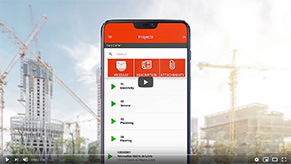
8 June, 2023
Mobile-Punch
SHARE
How Do You Manage A Dispatch Department?
When it comes to managing a dispatch department, efficiency and accuracy are of utmost importance. Unfortunately, many businesses struggle with how best to manage their dispatch departments, losing out on the opportunity to maximize productivity and improve customer satisfaction. In this article, we look at all aspects of managing a dispatch department, from setting up effective procedures to finding ways of improving overall performance while cutting down costs.
Defining The Role Of A Dispatch Department
A dispatch department provides real-time dispatching and route optimization with the goal to maximize operational efficiency. The key objectives of a dispatch team are to assign jobs quickly, optimize travel time between appointments, ensure that customers receive timely services, and prioritize urgent requests.
Dispatch departments play an important role in ensuring quality field services. Therefore, it’s essential that managers have visibility into their teams’ performance to monitor progress and identify areas where improvements could be made. Advanced tools like intelligent dispatch automation solutions enable companies to manage their workforce more efficiently.
With this technology in place, businesses can provide better customer service while reducing operational costs associated with manual tasks related to dispatching processes. For instance, companies often use automated systems based on AI-based technologies to make informed decisions when allocating resources and managing operations.
10 important features in project management software
Setting Goals And Objectives
Dispatch service goals and objectives should take into account any existing limitations or restrictions due to budget constraints or other factors. By planning ahead, you ensure that your team has the resources and technology to complete projects with maximum efficiency. When setting goals and objectives, make sure they are realistic and achievable within the time frame and aligned with organizational priorities.
Creating And Maintaining A Detailed Schedule
A well-run dispatch service has procedures in place so that each member knows what their role is in the larger context of efficient delivery of goods. An advanced dispatch optimization system can help by controlling the delivery routes of the drivers, such as offering the fastest route. Additionally, these systems come with features like driver tracking, which enables managers to monitor the performance of their drivers in real time.
How to create an electronic calendar
Establishing Standard Operating Procedures
Standard operating procedures ensure that all dispatch operations are running smoothly, efficiently, and in compliance with applicable regulations. These should include specific instructions on how every task should be carried out. Operating procedures should be reviewed regularly to identify potential improvements or new processes needed as technology advances over time.
Regular communication between departments helps keep everyone informed about changes in protocol or policy that may affect their workflows. Automation tools can help companies better adhere to standard operating procedures. By employing dispatch automation software combined with well-defined standards, managers can obtain better visibility into daily operations and make data-driven decisions.
Assigning Responsibilities
Field technicians and other skilled workers should have clear roles and expectations for their work. This can cover everything from scheduling field service appointments to tracking billable time. Organizing workflows is one of the most important aspects of a dispatch department. Streamlining processes like ordering supplies and routing crews can save valuable time and allow employees to focus on providing quality customer service. Thankfully, many manual processes associated with these tasks can be automated with the help of field service management software.
Training And Coaching Staff
Training staff within the dispatch department is essential for managing a successful field service business. Dispatch managers must ensure that all field service technicians are competent at their tasks and capable of effectively coordinating daily operations.
To stay competitive in the current market, it’s necessary for companies to invest in developing their teams’ knowledge and skillsets through ongoing training workshops which will ultimately improve performance and lead to increased profitability. Providing employee education sessions can help increase business efficiency while improving customer satisfaction.
Monitoring Performance And Adjusting Schedules As Needed
By monitoring performance and adjusting schedules as necessary with updated data from field services, mobile workers, and shipping companies, managers can create an efficient working environment. To excel at this task, managers should use automated solutions to track their team’s performance alongside any goals they’ve set for the company.
Field service teams, mobile workers, and shipping companies can use real-time data to make sure that same-day shipments arrive safely. With digital tools, managers have access to driver tracking capabilities in real-time, making it possible to adjust schedules quickly to ensure optimal customer satisfaction. This information allows them to stay ahead of potential issues so that delivery deadlines can be met without compromising safety standards.
7 reasons why Excel is putting your project at risk
Establishing Effective Communication Systems
Taking advantage of comprehensive reporting tools allows dispatchers to gain insights into performance trends over time so they can adjust schedules accordingly. By leveraging these kinds of solutions, managers are able to maximize the effectiveness of their teams and provide quality customer service every step of the way.
Providing an easy-to-access platform where field service providers can easily communicate allows businesses to reach their objectives faster and complete their tasks efficiently. It also allows the organization to track field operations in real-time, streamline the delivery process, and increase operational efficiency.
Ensuring Safety Regulations Are Followed
Ensuring safety regulations are followed is an essential part of successfully managing a dispatch department in the field service business. By implementing a dispatch management app, it’s possible to keep tabs on driver performance while also monitoring hazardous materials they may transport. This helps reduce the risks associated with vehicle accidents or mishandling of hazardous items.
Implementing Quality Control Measures
Implementing quality control measures involves understanding the business environment, historical tracking of deliveries, and following safety regulations. Here are three steps you can take for effective dispatch management:
- Make sure warehouse supervisors are aware of any new policies or procedures being implemented. This helps ensure all employees stay up-to-date with changes made within the organization.
- Track delivery costs over time to identify areas where savings could be made. This way, managers can make informed decisions about future operations and investments.
- Analyze historical data from past dispatches to gain insight into trends in your industry. This allows managers to better anticipate customer demand and plan accordingly.
With diligent monitoring, improved strategies, and creative solutions, organizations can maximize efficiency without compromising on quality or performance. Dispatch departments need to continually strive for excellence if they want their businesses to remain competitive in today’s ever-evolving markets.
Establishing Performance Metrics
Through the use of dispatch management software, supervisors cans see idle time, raw material utilization, and many other useful metrics. This allows them to get a deep-dive view of current traffic conditions. This data provides many benefits for dispatch managers, who can monitor how long it takes drivers to complete routes and ensure that each driver is making efficient use of their time on the road. Additionally, knowing what resources are available at any given time allows managers to optimize routes so drivers don’t waste fuel or time looking for parking spots.
Utilizing Technology Resources
Dispatch managers need reliable tools to do their jobs efficiently. The right technology gives these professionals invaluable insights into operations, allowing them to improve response times, reduce costs and increase customer satisfaction. Mobile-Punch’s dynamic dispatch app offers a comprehensive solution for managing field service processes such as scheduling, route optimization, customer communication, and real-time fleet vehicle tracking.
With up-to-date employee location data and other important details such as job status updates available at all times, this app allows for better visibility into overall dispatch efficiency. . Mobile-Punch allows companies to centralize all operations on a single platform. Thanks to this, the different departments of an organization can collaborate more effectively and complete their tasks more quickly.








